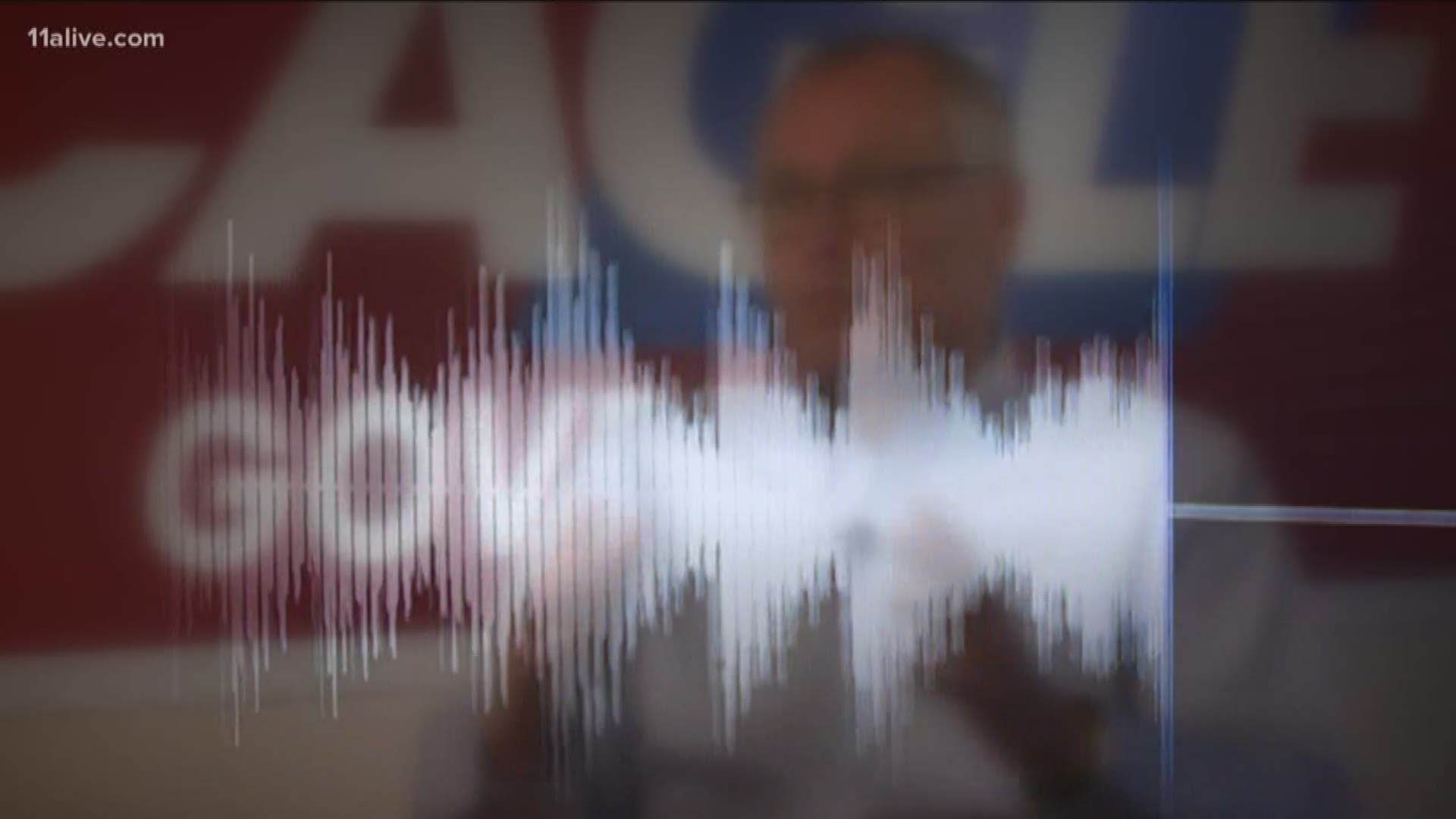ATLANTA — A bill introduced by one of the Georgia Senate's most powerful members would outlaw an audio recording without the consent of those being recorded.
The measure comes on the heels of an election in which the campaign of a front-running candidate for governor got upended by a secret recording.
"I don’t think anybody should be recorded without being notified. Whether it’s normal people, business people, politicians or anybody," said state Sen. Jeff Mullis (R-Chickamauga), chairman of the powerful Senate Rules Committee.
Mullis was a backer of Casey Cagle when Cagle ran for Governor last year. But last May, Cagle admitted he'd backed "bad" legislation for political reasons during a secretly-made audio recording—and its public release all-but crippled Cagle’s candidacy.
"This has nothing to do with Casey Cagle. This is the merit of the bill and the merit of the issue," Mullis countered.
State law now says only one party needs to consent to a recorded conversation. Mullis’ bill would change it to require consent from “all of the parties in the communication.” It would have made the Cagle recording a crime – and might have changed the election. Brian Kemp beat Cagle in the GOP runoff after the recording became the subject of news stories and negative advertising.
"We have this (recent) situation with Casey Cagle. All of a sudden, this is an issue," questioned Sara Henderson, executive director of Common Cause Georgia. "It just looks too political."
She says the bill would reduce the public scrutiny of politicians
"The bottom line is, if you're not doing anything wrong, why are you worried about being recorded? Don’t do anything wrong," Henderson said. "The only group of people this is protecting is those people in power."
Mullis said he was approached by unnamed constituents to introduce the bill.
"It’s not the politician. It’s the merit of the issue," Mullins explained. "People should know they're being recorded. Your mama, your daddy would have taught you the right thing to do. And that’s to let somebody know they're being recorded."
News organizations like 11Alive occasionally use one-party recordings to investigate wrongdoing. A two-party consent law would make such news coverage impossible in many cases.
Henderson says the bill would also eliminate the ability of domestic violence victims to secretly record evidence of their abuse for use in court cases.

